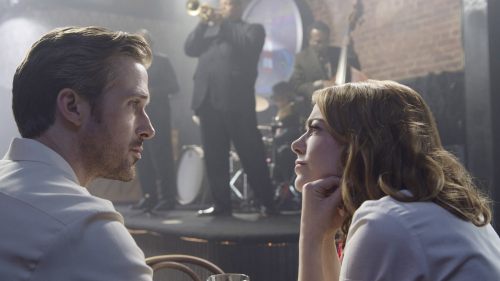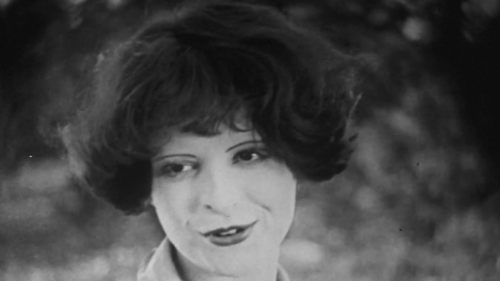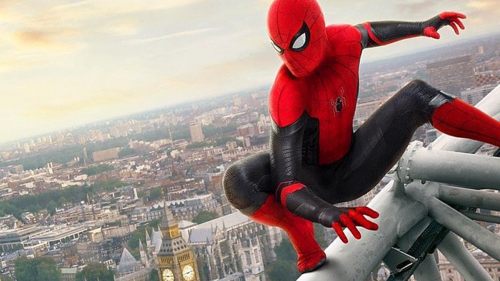Sundance Review: WHIPLASH
What is it worth to be not just great but one of the greats? What is worth giving up, what behavior is excusable, how far can you push someone? Usually we get one of two views of this: either a character learns that giving up love/family/domesticity is a bad bargain for greatness or he achieves greatness and we see that he is in fact a hollow wreck, emptied by the toll he paid.
Whiplash doesn’t buy either of those scenarios. Set in a Juilliard-esque musical academy in New York City, Whiplash is about a young drummer who dreams of being the next Buddy Rich, and the terrifying drill sergeant of a teacher who pushes him up to and far over the edge of his abilities. Miles Teller continues proving he’s the absolute real thing as Andrew, the drummer who is so focused on honing his skills that he plays until his kit is drenched in his own blood. And JK Simmons merges J Jonah Jameson and Schillinger into one profane, menacing form to play the teacher whose opening greeting to his band is ‘Good morning, cocksuckers.’
Teller has shown that he has goofy, good-guy affability in spades, a natural charisma that cannot be contained by the movie screen. He’s a movie star, basically, an actor you like to watch in anything. With Whiplash he stakes a claim to being a truly good actor on top of being a burgeoning movie star; the focus and dedication he gives to Andrew is remarkable, and his drumming sequences (which I cannot judge well on a realism level, not being musically inclined) are infused with strong character work. He’s not saying anything but his face is telling us more than any dialogue could.
For Simmons it’s all about the dialogue. Buff and bald in the tightest of black t-shirts, he stalks before the band like a monster choosing its next morsel. He drops racist and homophobic insults like beat poetry, delivered with speed and grace and hilarious beauty. It’s one of those roles that are tailor-made for Simmons, but the reality of him in it is even better than the initial concept of casting him because he’s able to find deeper levels beyond R. Lee Ermey-esque shouting.
Whiplash is the second directorial effort from Damien Chazelle, who wrote the musically-themed thriller Grand Piano (which is wonderful, by the way). He wrote it as well, and his script is a marvel; like a great jazz piece Whiplash keeps building up to to story points you might expect and then explodes in a totally different direction. Andrew meets a girl and falls for her, but that love story refuses to play out like the standard mainstream version of it where the boy must choose between the girl and the dream. There’s a late-movie rapprochement between the beleaguered student and the fiery teacher, but this isn’t a learning moment in Whiplash, it’s the set up for an unexpected (and awesome) turn in the plot.
Basically this isn’t Mr. Holland’s Opus or Dead Poets Society. Chazelle isn’t making a movie about how inspiring Simmons’ character is, and he isn’t making a movie about how Teller’s drummer finds himself. It’s almost the musical movie equivalent of Lone Survivor, a movie that zooms in on the pain and agony of being great, lingers on every drop of blood and hurtful word, and asks ‘Do you dare to try as hard?’ In a world where participation medals and A for Effort is the standard, Whiplash’s devotion to the concept of absolute greatness is almost revolutionary.
Whiplash doesn't achieve the kind of greatness it praises. Part of me thinks I should be taking cues from the film and excoriating Chazell for the things that don't quite work, but they're so minor - and I'm no drill sergeant - that I think we can let him off the hook. The film's musical sequences are dynamic and exciting enough to overcome some of the weaker spots (most involving Paul Reiser, a few involving other students, including a guy who looked so much like Stiles from Teen Wolf I couldn't tell if it was on purpose), and the best praise I can give Chazell is that I walked out of the movie wondering if perhaps my lifelong aversion to jazz was wrong.



